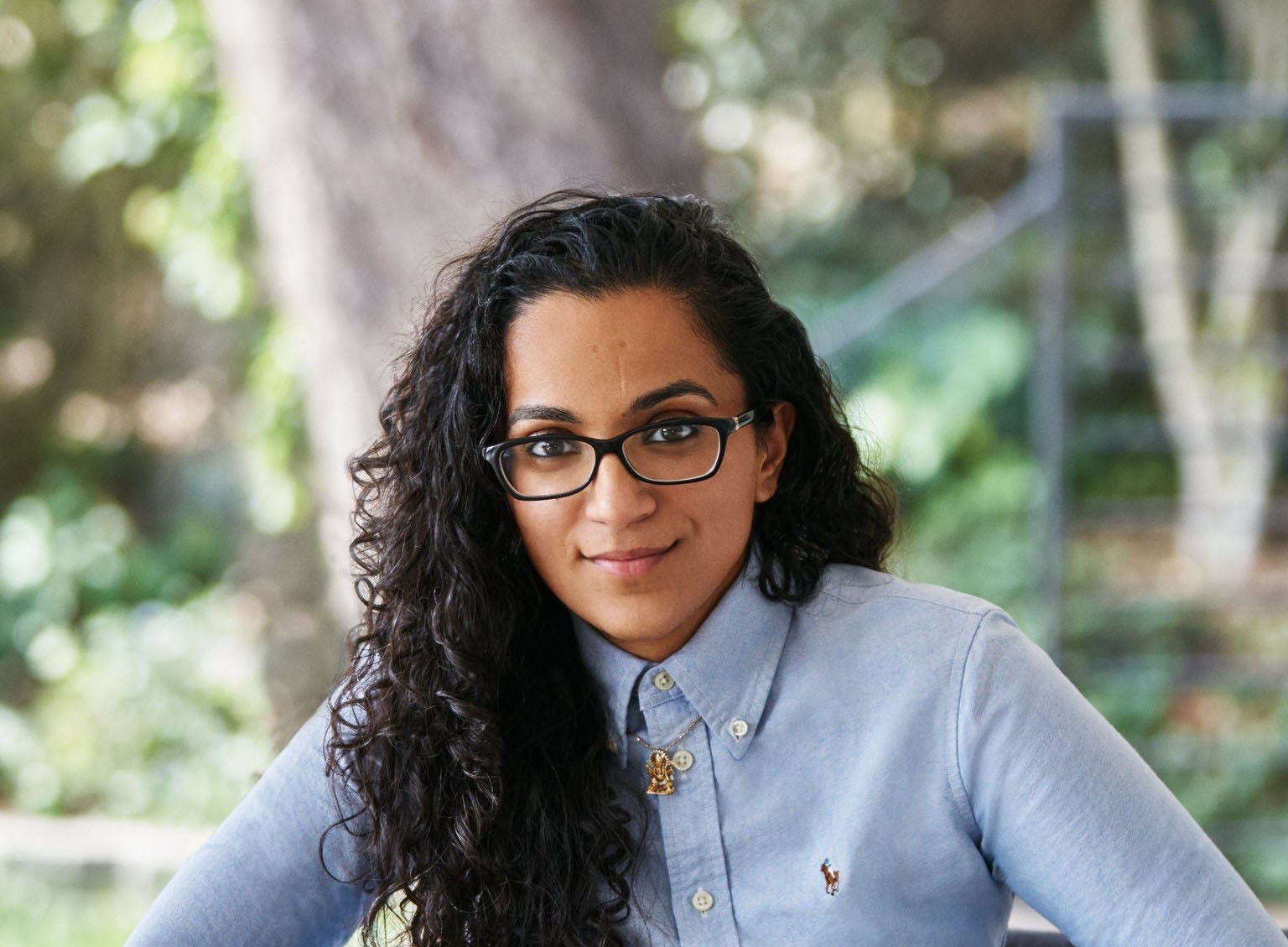
SONYA
PASSI
What does a system that trusts survivors look like? How can we create conditions for people to create the care they need for themselves?
Watch our conversation with Sonya Passi and read along below.
Video Transcript
Sonya Passi is the founder of FreeFrom, an organization of survivors working to dismantle the nexus between financial insecurity and intimate partner violence. FreeFrom builds community power to change systems and collectively heal. FreeFrom’s rapid response fund to Covid-19 provided unrestricted cash grants to over 4,100 survivors.
I had a funder one time say to me, "Wow, you pay really well, you must be hiring experts." And I said, "Yeah, we are, we're hiring experts. We're hiring people who have lived through and continue to live through and will live through the experiences that we're talking about."
"Survivors know best" is at the root of every single decision FreeFrom makes.
Trusting Survivors
Care is pivotal to everything that we're doing at FreeFrom, both internally and externally, and so much of the way that we as a society think about intimate partner violence is so devoid of care. We judge survivors, we shame survivors, we mistrust survivors. It's sort of like, "You got yourself into this situation. You get yourself out of it." So much of care is acknowledging our own accountability, and so in the work to end intimate partner violence, that's acknowledging this as a societal problem.
The bar is so low for care in the context of intimate partner violence work. Survivors are so often saying, "This is the first time that I feel seen" or "This is the first time that I don't feel judged," and it's both beautiful to receive those messages and also so sad that that has been the experience from law enforcement, from the courts, wherever it may be.
What we hear time and time again from survivors is they feel validated, they feel trusted, and you know, we never ask survivors to prove that they are survivors. We never ask for documentation that they really can't afford services or anything like that. We come at this from a place of trust, we come at this with the knowledge, because we are survivors ourselves, survivors know best.
We know best how to stay safe, we know best how to take care of ourselves. We know best what we need and when we need it, and that is I think what's missing from the way that we as a society address this issue.
Create Space
So often, our response to the problem, we either perpetuate that, which is to have a careless response, which is to say, "This is your fault, you should've left sooner.” "You're a bad parent because you stayed in this situation." Or what we do is take this very paternalistic approach, which is to say, "Let me take care of you." "I know what you need." "I know how to make this better for you."
So much of the way that we have set up care in our society is that, it is a top-down, paternalistic, hierarchical model of “I have the knowledge, you need the support, I can take care of you.”
In so many ways, it is often unintentionally perpetuating the same messages of the harm, which is, "You don't know what's best for you." And actually, survivors are survivors. They know how to survive, they are incredibly strategic. All any of us should really be trying to do with our time and energy and talent is create space for people to be able to take care of themselves, remove obstacles to people being able to take care of themselves, not to remove someone's agency or someone's power and someone's knowledge of their own needs.

From the Inside Out
If I had to come up with a synonym for care, it would be expansion.
Taking care of each other, of the problem, of those in our community, is so generative. The more we care, the more we can do, the more we can create, the better we can feel. It just opens up so much expansion. For me in particular as an employer, care has got to be at the center of how I lead — otherwise I cannot be an effective leader.
My job is to take care of my staff, their wellbeing, their careers, their professional development. The only way that we thrive is through that care, and I really see employers as having such a big role to play in creating environments in which survivors can thrive. It's incredibly expensive to be a survivor. The CDC estimates that intimate partner violence will cost a female survivor $104,000. So if you are barely making enough to meet your basic costs, how are you ever actually going to be able to recover from the harm?
We're also committed to hiring QTBIPOC [queer and trans Black, Indigenous, people of color] folks, and what QTBIPOC folks don't typically have is generational wealth. So I want my staff to be able to buy a house, I want them to be able to invest in their future and their next generation's future. And then there's our benefits, and our benefits are really set up to support people in living good and healthy and healing lives.
So we have everything from gender-based violence paid leave, which means at any point if anyone on our staff or an immediate family member of theirs experiences gender-based violence, they can — no questions asked — take two weeks to go and do whatever it is that they need to do.
We have unlimited menstrual leave. We have unlimited vacation, we offer a vacation stipend so no one has any excuses for not taking the time off. We close the office for two weeks in the summer and two weeks at the end of the year. We have a building wealth stipend, which is money set aside that folks specifically are encouraged to invest in their future, always thinking about — given how financially devastating harm is, given how many different intersecting systems of oppression are at play for our staff — how can they thrive, and how can we support them?
The innovation of FreeFrom is the innovation of survivors. It is the creativity of survivors, and that is both our staff, but also everything that we do is in community and in conversation with the survivors that we work with. We are, we don't see survivors as our clients, we see survivors as our community, as our movement.
Economic Justice is Healing Justice
I think patriarchy in particular kind of stripped the gender-based violence movement of that economic core. What does safety without financial security mean? Well the truth is, it doesn't exist, and so I think that has been one of the things that has held the movement back, is it became stripped of that economic core, and I see our work as really putting that central component, that the thing that you need for safety, the thing that you need to end gender-based violence is financial security.
In July of 2019, we hosted the first ever Survivor Wealth Summit. At the end of the conference, we decided that our definition of wealth is community, and "Community is wealth" was the takeaway from the conference, and I think I would go as far as to say care is wealth, and wealth is care, and so much more requires full societal accountability. Our education systems, our banks, our credit card companies, our employers, our health insurance companies. You should not have to pay copays to recover from harm associated with intimate partner violence. Our society created this problem, our society perpetuates this problem, and it is only survivors who are bearing the brunt of the cost of this problem. And so, that cost has to be diluted across our society.

Direct Aid
What happened at the beginning of COVID when we started to talk to survivors in our community, they kept saying what they needed was cash, and so the simple act of care there was to listen to survivors and give them what they needed. And that, sometimes our own kind of judgment of money, our own attempts to be anticapitalist, our own trauma and fear around money can stop us from thinking about money as medicine, and money as healing.
Edgar Villanueva talks about money as medicine. There is so much care that can be cultivated through having the means to buy groceries or the means to make rent, so last year we were able to get 4,100 grants to survivors in all 50 states and Puerto Rico. These were no strings attached grants. You could spend it how you needed, we did not ask questions.
One survivor shared with us that she used the money to fix her car, and why fixing her car was important because it was the only way that she could get her daughter to supervised visitations with her harm-doer on time, and her harm-doer had said, "If you don't drop her off on time, I'm gonna keep her and you're gonna have to fight me in court for her." And so $250 at that moment allowed this person to fix their car, ensure their kid was safe, and avoid thirty, forty, fifty thousand dollars in legal fees to fight for custody for their child.
That's care, it doesn't have to be more complicated than that. It's really, what does somebody need, and how can you support them in meeting that need? It is a waste of our time to be asking people who are coming to you for $250 to provide proof that you then have to review that they have experienced harm. And so it's actually really expensive to operate from a place that isn't caring. It's really expensive to operate from a place of mistrust, and from a place of we're being cheated.
It's a lot more efficient and a lot more productive to operate from a place of trust, and so that's how we do that. We're not always doing this the best way, we're not always doing this the right way, but we're always doing it with care and thought, and a commitment to learning and refining and more directly meeting the needs of our survivor community.
